We all want to have perfect teeth, but sometimes we don’t always get what we want. It’s important to take care of your teeth and fix any problems before they become worse. Fortunately, there are many dental problems that can be fixed with little effort or even without treatment at all. Here are some of the most common dental issues and how you can fix them:
Contents
Cavities
Cavities happen when bacteria from food get caught in between your tooth enamel. To prevent cavities, you should brush twice a day with fluoride toothpaste and floss regularly. If you already have cavities, make sure to visit the dentist for regular cleanings, so they don’t get worse.
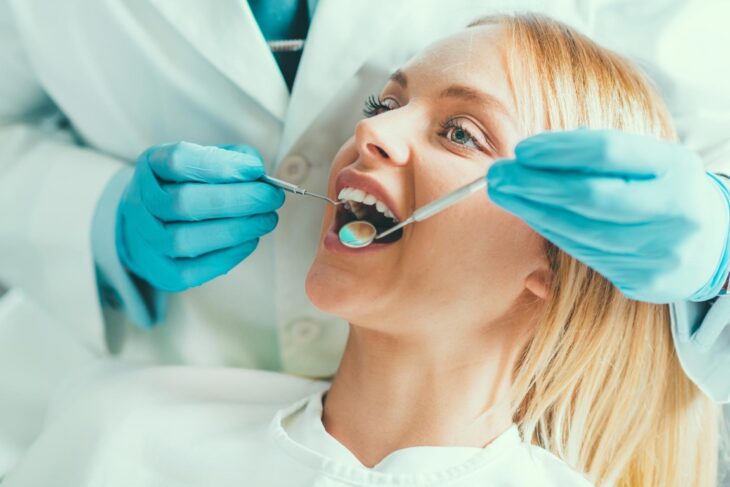
Source: upperhuntclubdentalcentre.com
Tooth Decay
This can be caused by a number of factors, but the most common is bacteria.
The two types of bacteria that create plaque are Streptococcus mutans and Lactobacillus acidophilus.
When food particles remain on the teeth too long, these germs break down sugars into acids which then eat away at tooth enamel. This is what causes tooth decay.
To prevent this, you can brush your teeth at least twice a day with fluoride toothpaste. It also helps to floss daily and visit the dentist regularly for professional cleanings.
You should limit the amount of sugary snacks you consume each day. If you do not have access to quality toothpaste or brushing materials, rinsing your mouth with clean water after every meal can be just as effective.
Cavities are holes in the enamel of your teeth that result from excess acid erosion by cariogenic bacteria or acidic foods.
Dry Mouth Syndrome
Crooked teeth and dry mouth, or xerostomia, occurs when there’s a reduced flow of saliva in the mouth, leading to discomfort and an increased risk of cavities and gum disease. Saliva plays a crucial role in maintaining oral health by neutralizing acids produced by bacteria, limiting bacterial growth, and washing away food particles. To manage dry mouth, stay hydrated by drinking plenty of water, chew sugar-free gum to stimulate saliva production, and avoid tobacco and alcohol, which can exacerbate dryness. Your dentist may also recommend saliva substitutes or medications that stimulate saliva production if the condition is severe or persists. Regular dental checkups are important for monitoring and managing the effects of dry mouth on your oral health.
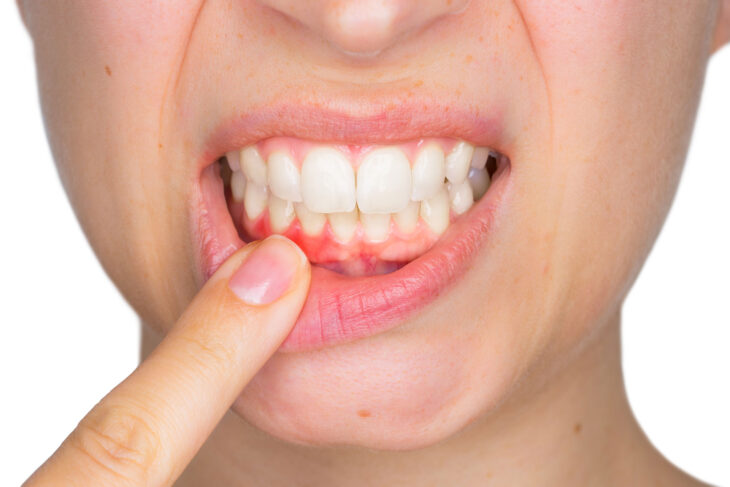
Source: eklinika.rs
Gum Disease/ Gingivitis
Periodontitis, or gum disease, is the leading cause of tooth loss in adults. It occurs when plaque and tartar accumulate around your teeth which can irritate gums causing inflammation. If these are not removed quickly enough by brushing and flossing daily, bacteria will settle into this area causing infections and eventually bone loss.
To prevent periodontitis, it is important to keep your teeth clean. You should brush at least twice a day for two minutes with fluoride toothpaste and floss daily. It also helps to visit the dentist regularly for professional cleanings in order to remove tartar buildup before it becomes problematic.
If you have inflamed, bleeding gums, it is important to go and see a dentist (or doctor) for treatment. If left untreated, gum disease can lead to tooth loss, requiring expensive dental implants or bridges.
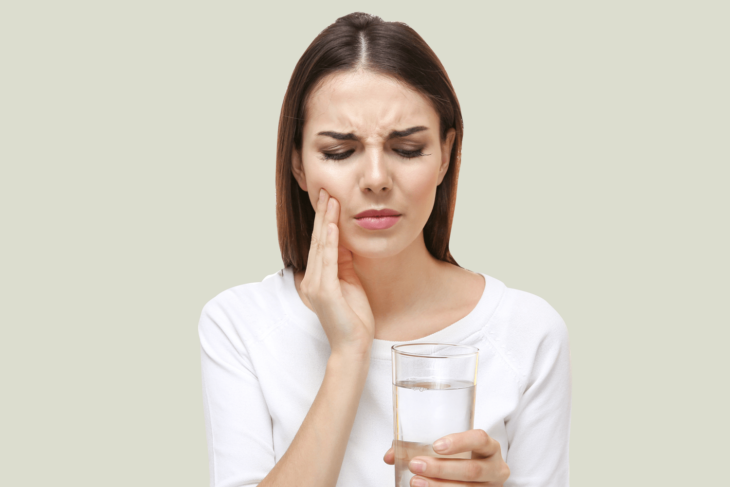
Source: easterndental.com
Tooth Sensitivity/ Irritation
If you are experiencing pain or discomfort when eating hot and cold foods, it is likely because there is exposed dentin on your teeth. Dentists can fix this problem by placing a thin layer of enamel over the dentin in your teeth.
Dental fillings and crowns can cause tooth sensitivity. If a dental filling is too large, it can push against your teeth causing them to become sensitive.
Tooth Sensitivity can be treated with root canal therapy or replacement of the tooth filling or crown if necessary.
Fractured or Cracked Teeth
If you break or crack one of your teeth, it is important to go and see a dentist for treatment ASAP. Broken tooth fragments can trap food easily, which would lead to an infection if not treated immediately. If left untreated, the infection could spread to your other teeth, requiring expensive dental implants or bridges.
A dentist can fix this problem by placing a crown over the broken tooth until you get an implant or bridge done.
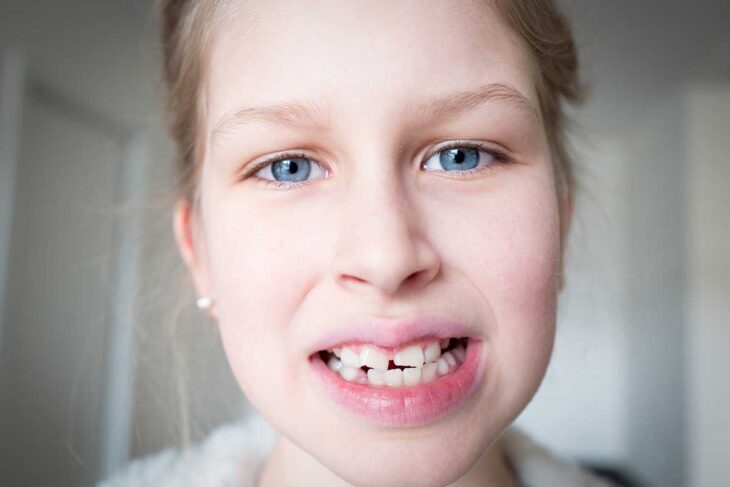
Source: lindemannrcs.com
Overcrowded or Crooked Teeth
It happens when teeth don’t fit together properly, this is known as malocclusion. May be caused by genetics or improper brushing and flossing of the teeth. The ideal way to deal with crowded or crooked teeth is orthodontics which uses braces that move surrounding teeth into proper alignment over time.
If you have crowded or crooked teeth, it can be quite embarrassing to smile. A dentist will most likely recommend that you get braces to fix this problem. Braces straighten your teeth and align them by putting pressure on the enamel using brackets and wires.
As explained in this article, you can also opt for invisible braces, which do not show when you smile. However, invisible braces are usually more expensive than traditional metal ones, so it is up to you which one to choose.
Overbites or Underbites
Having an overbite or underbite can be pretty embarrassing and cause problems like biting your gums while eating. A dentist will most likely recommend that you get braces to fix this problem. Braces straighten your teeth and align them by putting pressure on the enamel using brackets and wires.
Overbites are the most common type of malocclusion. The teeth in an overbite will overlap beyond what is considered normal, causing it to protrude outwards from the mouth.
Oftentimes there is also a deep bite that contributes to extra wear on the back molars and premature wear or even tooth loss. Overbites can also cause problems with speech and can open the door for decay in the back of your mouth.
Overbites are treated by correcting jaw growth, which will allow you to have a normal bite without having to wear retainers as an adult.
If it is caught early enough, many children’s overbites can be corrected through orthodontics before most of their permanent teeth have grown in.
For children, adults and seniors who suffer from an overbite or underbite, the best way to treat it is with braces. However, some people can’t afford dental insurance for braces so they choose removable appliances like invisalign instead.
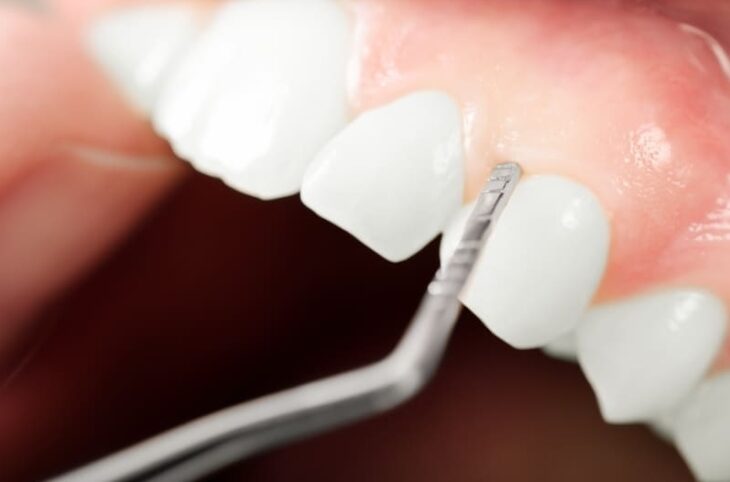
Source: sdperio.com
Uncomfortable or Painful Bite
A bad bite is when one or more of your teeth are touching other teeth and causing discomfort or pain when biting down. If you have this problem, it is best to see a dentist for treatment because they will most likely recommend getting bite guards to fix the issue. Bite Guards reposition the way your top and bottom teeth come together, so there isn’t any uncomfortable or painful pressure on your teeth.
In conclusion, there is no need to panic if you have any of these common problems. Most of them can be fixed with a little effort and some tender loving care. Take care of your teeth, and they will thank you later.
